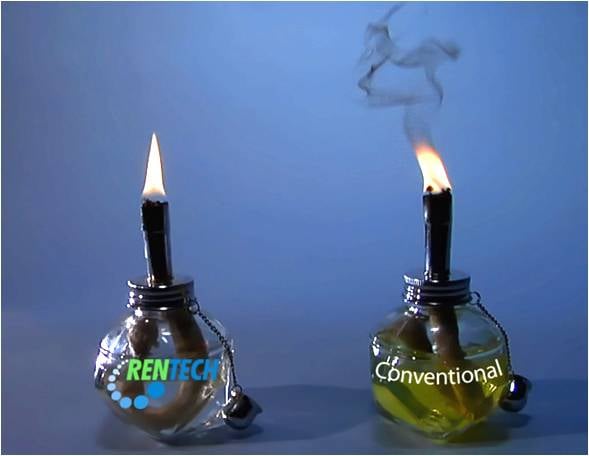
A Westwood company hoping to become the world’s leading provider of synthetic jet fuel and diesel has taken another step in that direction.
Rentech Inc. has signed a memorandum of understanding with the Republic of South Korea’s Jeollanamdo Province, an emerging center for renewable energy, to jointly seek opportunities to license the company’s proprietary process for producing fuel from coal, natural gas and plant wastes.
“They’ve taken a leadership role in their province to generate their own sources of energy that is environmentally friendly,” said Julie Dawoodjee, Rentech’s vice president of industrial relations. “Rentech technologies can help accomplish that.”
Under the terms of the memorandum, signed earlier this month, the company will work with provincial officials to license the process to qualified local providers. While Rentech has signed previous MOUs with specific companies in Europe, Canada and Africa, this is the first with a government and the first in Asia.
“It furthers our global footprint and expands deployment opportunities for our technologies and power production,” Dawoodjee said of the agreement.
Earlier this year, Rentech made news by supplying the fuel for a United Airlines Airbus 319 that took off from Denver International Airport for a 90-minute test flight. The tanks contained a mixture of 60 percent standard jet fuel and the rest synthetic. Industry officials said it was the first engineering validation of a commercial aircraft flight in the United States using synthetic fuel produced by a process approved last year.
The process, called Fischer-Tropsch, involves a set of chemical reactions that converts materials containing carbon monoxide and hydrogen – typically coal, natural gas or biological wastes – into liquid fuel.
Industry experts said the test flight’s success gave Rentech a leading position in what has shaped up as a dogfight to sell synthetic jet fuel to the nation’s commercial aviation industry.
The company is in the early stages of planning a $4 billion, 450-acre plant near Natchez, Miss., and is expected to begin producing a version of the synthetic fuel made from coal – called RenJet – as early as 2014.
In addition, it is planning a smaller $400 million plant in Rialto to produce synthetic diesel fuel – called RenDiesel – made from yard waste beginning in 2012. Rentech has a contractual agreement with United and eight other airlines to supply the fuel for ground service equipment operations at Los Angeles International Airport.
Rentech’s competitors include World GTL of New York, Syntroleum of Tulsa, Okla., and AltAirFuels of Seattle, which uses a slightly different process.
Watering by Internet
An Encino manufacturing startup peddling “smart” sprinkler control systems has received a $1.8 million cash infusion.
Cyber-Rain, founded in 2007, has developed a proprietary control box that automatically adjusts watering schedules according to weather conditions reported on the Internet.
Thus, on rainy days the sprinklers turn off, while watering merely decreases when it’s humid or cold. During warm weather, the lawn gets its full water quotient.
The control boxes, which retail for about $399 online and at garden and home improvement shops in the Western United States, plug into an Internet-connected PC at one end and the sprinkler system at the other. The company claims to so far have sold 1,200 units.
The recent investment round is the latest in a series the company has received since 2007 totaling about $4 million. It was led by DeWaay Investment Partners, a venture investor in Des Moines, Iowa. Additional funding came from Athenian Venture Partners of Athens, Ohio; Momentum Venture Management of Altadena; and Funk Ventures of Pacific Palisades.
“In the Midwest we’ve got tons and tons of rain, but in other more arid parts of the country like California, water is a scarce resource. This company has a great technology to conserve it,” said Adam Claypool, manager partner of DeWaay, who added that he expects a “nice return” in three to seven years.
Cyber-Rain spokesman Richard Berman said he expects most of the new money to be spent on developing and manufacturing the next generation product, which is wireless.
“Eventually, you could operate it through, say, an I-phone app,” he said.
Lean and Mean
Lean Enterprise Institute Inc., a nonprofit research, education and publishing company based in Cambridge, Mass., has scheduled a series of workshops in Marina Del Rey next month to help companies implement lean manufacturing.
The day-long workshops are scheduled for Nov. 9, 10 and 11 at the Marriott Marina Del Rey, 4100 Admiralty Way. The cost is $800 including tuition, training materials and meals.
Staff reporter David Haldane can be reached at [email protected] or at 323-549-5225, ext. 225.
